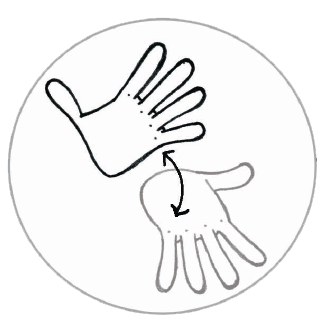We are pleased to announce that EUMASLI, the European Master in Sign Language Interpreting, will be offered again from September 2013.
EUMASLI is an innovative international master study programme that is intended to contribute to the development of the professional field of interpreting between deaf and hearing people in Europe. It aims to prepare participants for research, development, and management functions in their respective countries. EUMASLI started out as an EU-Erasmus curriculum project (2006–2009), and was first implemented with 16 participants from 8 countries from 2009 to 2011. Read more about the rationale of the programme, some of its starting points, its module structure and its organisation.
EUMASLI’s strength lies in its international outlook and in its collaborative spirit. Organised and delivered by Magdeburg-Stendal University of Applied Sciences (Germany), Humak University of Applied Sciences (Finland) and Heriot-Watt University (Scotland), the programme brings together teachers and students from around the world in a joint effort to move the field of sign language interpreting forward. It affords scope for individual development and encourages cooperation across geographical, cultural and conceptual borders.
EUMASLI II will be run by the same international team that developed and delivered the first round of the programme. Over the period of 2.5 years, students travel to participate in block-seminars at all partner universities and engage in online activities and self-study. Since 90 ECTS credits (i.e. the equivalent of 2,700 student working hours) are to be obtained, the work load is considerable.
Study area 1 : International skills
This part of the programme affords opportunities for applying and strengthening linguistic and translation skills. After an encounter with the three national sign languages involved, i.e., Finnish Sign Language (FSL), British Sign Language (BSL) and German Sign Language (Deutsche Gebärdensprache, DGS) in module 1.1, International Sign (IS) is afforded a special place in the programme (modules 2.1–4.1). Possible uses of IS in transnational communication, including transnational interpreting assignments, are reflected, and it is expected that experience in IS will have positive effects on the use of each participant’s national sign language.
Study area 2 : Developing the profession
This part of the programme is concerned with various aspects of analysing the professional situation of sign language interpreters with a view towards developing the profession. Starting out from a comparative inspection of the Deaf communities in the three partner countries in module 1.2, results from interpreting and translation studies will have a place here (module 2.2), but students will also be discussing individual, social, and political aspects of working as a professional interpreting practitioner (module 3.2).
Study area 3 : Doing research
Theoretical approaches to translation and interpreting studies introduced in module 2.2, on the one hand, and a continuous thread of reflections on the professional experiences of the participants, on the other, lead up to the third major part of the programme, ‘doing research’. Harking back to academic skills first introduced in module 1.3, relevant research methods and critical reflection of research as practised in the field will be the focus of module 4.2, which prepares students for carrying out their own study in the context of producing a Master thesis (module 5), and thus to conclude the programme as ‘practisearchers‘.
